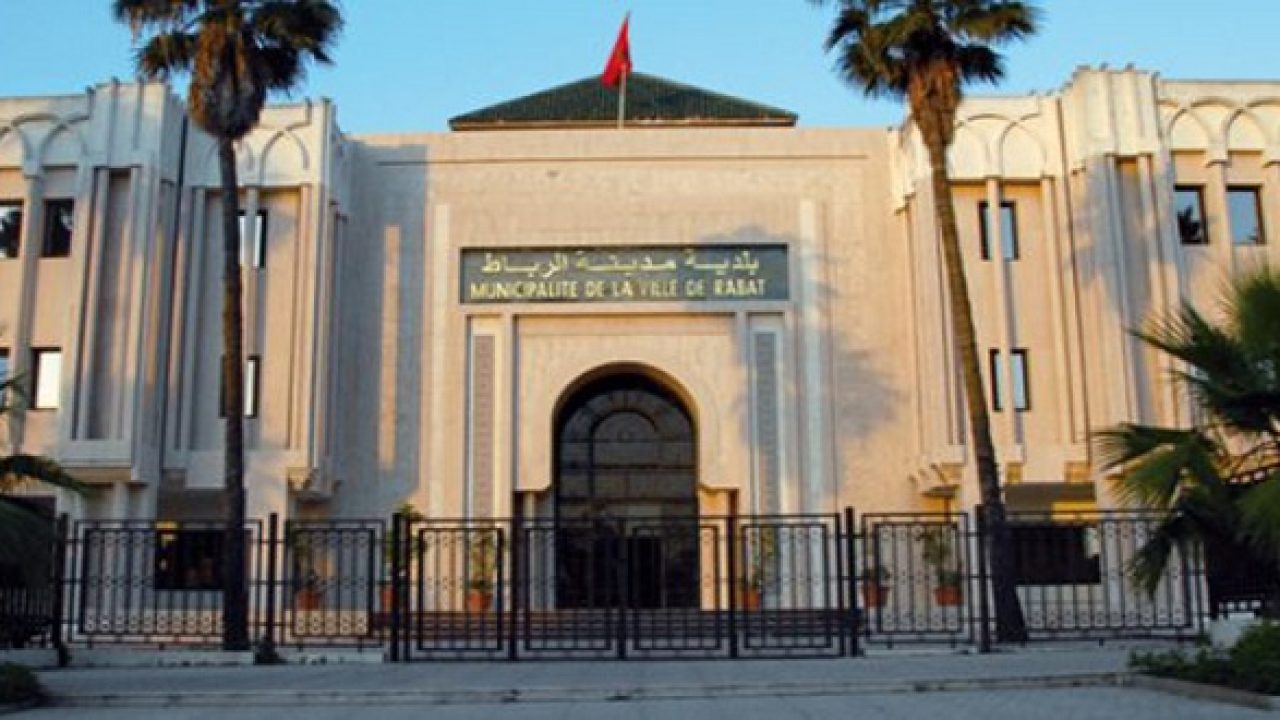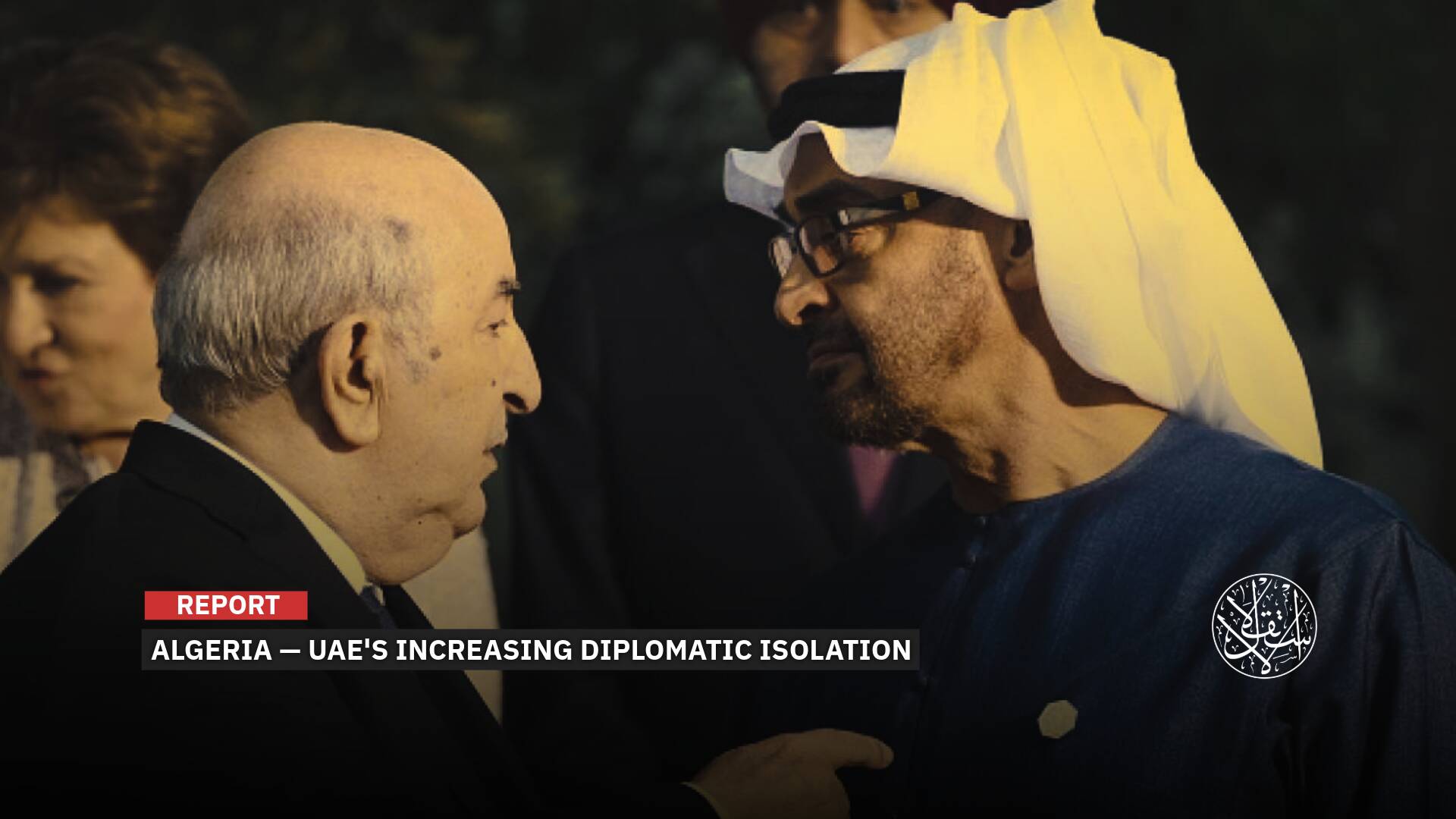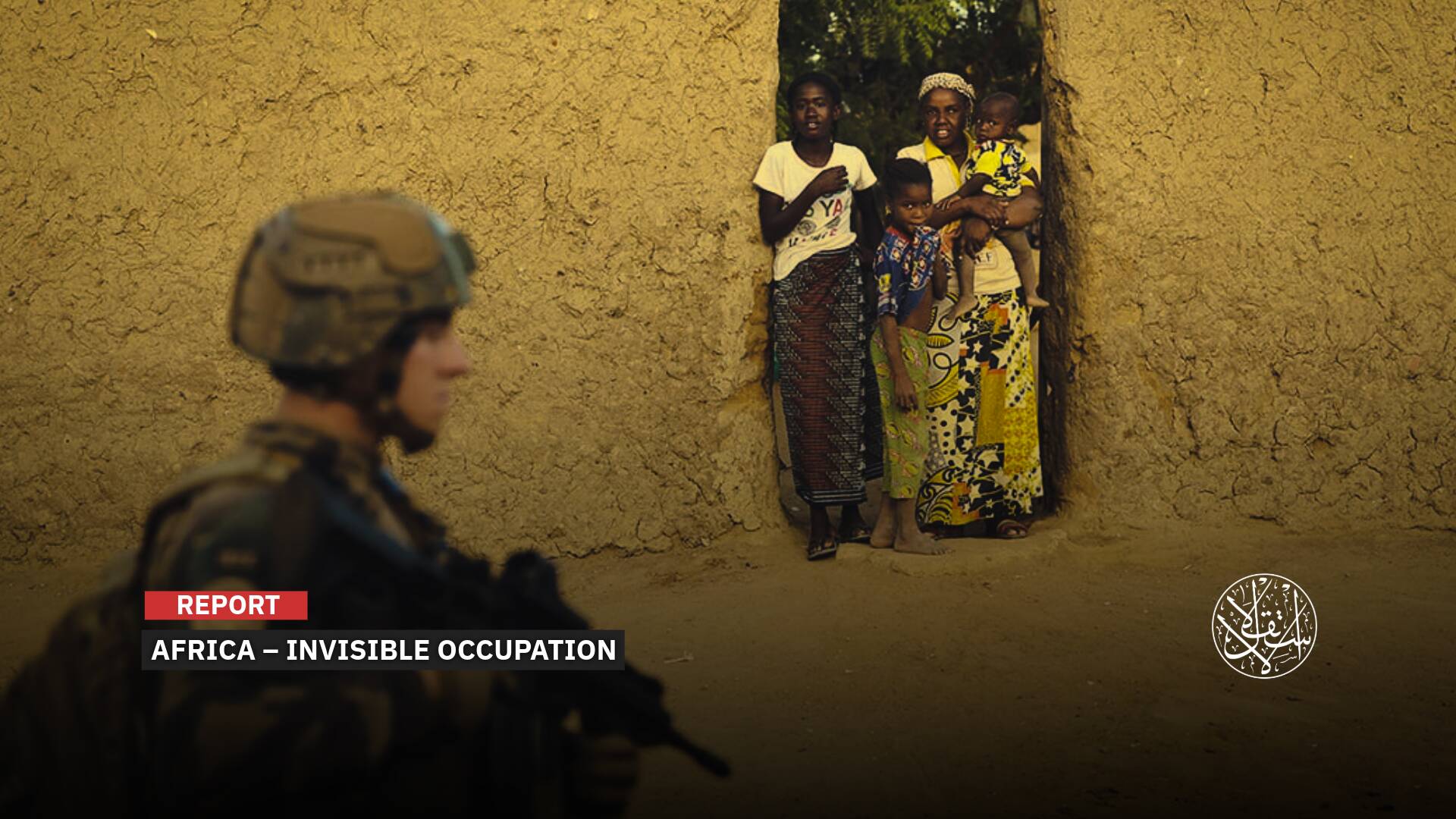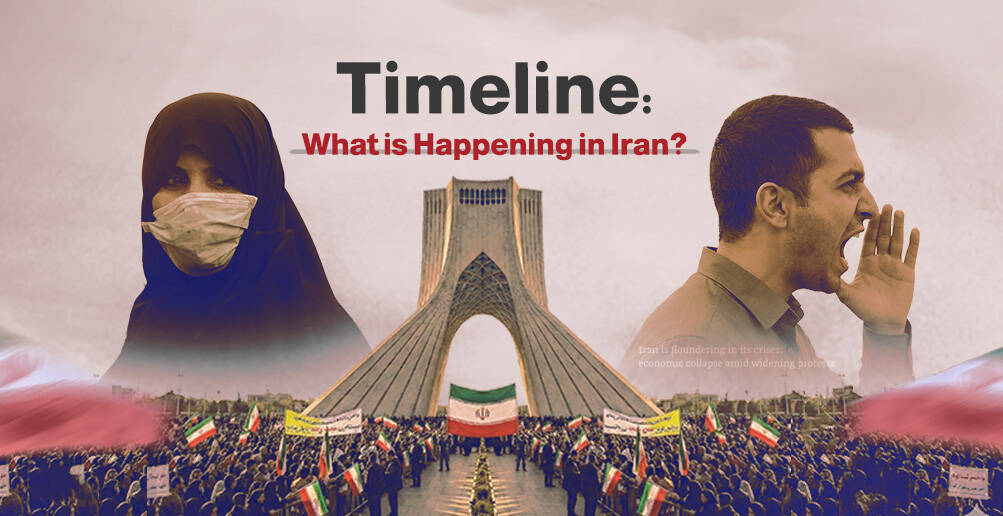Demolishing Neighborhoods in the Moroccan Capital: What Is the UAE’s Connection to the Story?

Today, we are facing an unprecedented operation in the history of the nation.
The controversy in Morocco has intensified following a wave of demolitions, relocations, and expropriations affecting several neighborhoods in the capital, Rabat.
This has come as part of preparations for the 2030 World Cup, raising concerns about the potential benefits for foreign entities and government affiliates involved in the process.
Opposition parties have strongly criticized the extensive demolitions, which have affected areas such as the coastal al Mohit district, the Saniya Gharbiya and Dar al Askar neighborhoods, targeting hundreds of homes and businesses in the process.
The municipality asserts that the demolitions are part of the Rabat city redevelopment program, a project officially published in the kingdom’s official gazette on February 20, 2025.
The program includes the refurbishment of several prominent neighborhoods, such as el-Farah, Oued Bou Regreg, Errachad, al-Inbiaat, and al Mawaddah, alongside the launch of urban development projects in the el-Akkari district.
According to the municipality, the goal is to improve living conditions and enhance the city’s aesthetics in line with international standards.
The plan includes allocating 1,372 hectares for strategic expansion areas, as well as 487 hectares for new projects, with 262 hectares earmarked for green spaces to establish the concept of a green city.
Rabat is also set to experience significant expansion in its transportation network, including improvements to tram lines and the development of modern roadways to ease mobility.
The redevelopment will encompass neighborhoods such as Yacoub el-Mansour, Hassan, Souissi, and Youssoufia, with a focus on boosting tourism and commerce through the creation of urban centers and innovative projects.
Eviction Concerns
The General Secretariat of the Justice and Development Party (PJD) expressed deep concern over the ongoing eviction and demolition operations carried out by authorities in Rabat, citing reports of legal violations and irregularities.
In a statement issued on March 15, 2025, the Islamist party raised questions about the fate of the properties acquired from demolished buildings, as well as the material and emotional damage inflicted on the affected citizens.
The party called on the government and local authorities to adhere to the legal procedures outlined by law, stressing the need for transparency and consideration of the public interest regarding the fate of these properties.
It also urged the respect of citizens' rights, including the constitutional right to property.
The party has decided to establish a special committee to monitor the issue, given its multifaceted nature and potential for further developments.
For its part, the Progress and Socialism Party emphasized that while the urban redevelopment and rehabilitation efforts taking place in several Moroccan cities, including the latest in al Mohit and Saniya al-Gharbiya neighborhoods of Rabat, are crucial, they must simultaneously be carried out within a framework that upholds the rights and dignity of citizens.
In a statement issued on March 19, 2025, the left-wing party warned that the demolition and relocation efforts affecting several neighborhoods in various cities have raised concerning consequences for the affected families, particularly in terms of their human and social well-being.
The party stressed that such operations should only proceed once all necessary conditions have been met, advocating for an approach that involves engaging with the residents, consulting with them in advance, and convincing them regarding fair compensation and viable alternatives.
The House of Representatives has called for a meeting of the Committee on Interior, Local Authorities, Housing, Urban Planning, and Administrative Affairs to discuss the redevelopment of the old city of Rabat and the social challenges it has caused.

Arbitrary Destruction
The Moroccan Association for Human Rights (AMDH) in Rabat condemned the demolition of homes in the Mohit neighborhood and its surrounding areas, urging local authorities to immediately halt the demolitions and provide compensation for the damage.
In a statement issued on March 10, 2025, the association highlighted that several neighborhoods in Rabat have been witnessing demolition operations led by the authorities, prompting property owners to resort to fraudulent methods to sell their properties to Emirati and other Gulf investors.
The association condemned the pressure, intimidation, coercion, and displacement faced by residents in the areas affected by the demolitions and relocations, carried out by local authorities.
It called for an immediate halt to the demolitions, relocations, and all forms of coercion used to force individuals to abandon their homes and businesses, while demanding that local authorities provide full transparency to the public regarding the urban redevelopment projects in the area.
Fatima al-Abous, the general supervisor of the Moroccan Organization for Human Rights and the Fight Against Corruption, described the ongoing demolitions as "arbitrary destruction."
In a statement to Febrayer on March 15, 2025, al-Abous accused local authorities of overstepping their legal boundaries and misusing their power.
She called on the wali (governor) of the Rabat-Sale-Kenitra region to personally meet with residents and provide direct clarifications on the matter.
Al-Abous noted a complete lack of transparency in the matter, asserting that "private interests and hidden agendas" were behind the demolition decisions.
She also criticized the local authorities for using threats and intimidation tactics against residents, particularly during Ramadan, a time that should be dedicated to peace and security.
Al-Abous called on the authorities to ensure that local residents benefit from future projects, arguing that it is neither logical nor acceptable to exclude those who have lived in these areas for decades, whether they are property owners or tenants.
She also urged a detailed report be submitted to King Mohammed VI, calling for urgent intervention to rectify the situation and halt the ongoing violations.
Unacceptable Intimidation
Abdel Samad Abou Zouhir, the regional secretary of the Justice and Development Party in Rabat, emphasized that criticisms surrounding the issue also highlight the lack of any reassuring official communication, both from local authorities and the majority running the Rabat City Council, as well as the Urban Agency, a government body responsible for managing the city's urban planning.
"The local public still recalls the statements made by the director of the Rabat-Sale Urban Agency, Khadija Knou, who assured that 'there will be no demolitions or forced evictions of residents,'" he told Al-Estiklal.
"This discrepancy between words and actions has fueled growing social unrest among Rabat's residents, further eroding public trust in both appointed and elected official institutions."
Abou Zouhir emphasized the "lack of legal support, official documents, and clear procedures for initiating demolitions and evictions," explaining that "the demolitions are being carried out without residents receiving any written administrative decision or legal document explaining the reasons for the demolitions or the details of the project."
"There are strong rumors circulating regarding secret deals with unannounced private real estate investors," he added, pointing out that there have been reports suggesting that businessmen, particularly from the UAE and other Gulf countries, are benefitting from these properties.
Abou Zouhir argued that the use of threatening language by "intermediaries," such as "we will resort to other measures if you refuse to sell" (according to residents' accounts), constitutes unacceptable intimidation, urging for an investigation into the matter.
He also highlighted that the threat of cutting off essential services (water and electricity) from some homes to force residents to leave is an arbitrary and inhumane measure that violates the constitution.

Consensual Agreements
In response to the intense criticism surrounding the demolition operations, Rabat's mayor, Fatiha el-Moudni, confirmed that "the demolitions did not follow the procedures for expropriation for public use."
"The relationship between the involved parties was contractual, between the seller and the buyer, in accordance with established legal norms," she noted.
"The process was consensual, with owners and buyers negotiating directly and reaching agreements without any coercion or illegal intervention," she said in a press conference.
El-Moudni emphasized that "some testimonies provided by citizens confirmed that the contracts were made with the Directorate of State Property, refuting any claims of foreign involvement or external interventions in this process," while also rejecting the "political exploitation of this matter."
"The city of Rabat has adhered to transparency and legal procedures, with all details and steps related to the public inquiry being published," she added.
El-Moudni affirmed that compensation was provided according to clear criteria, with each party negotiating their entitlements "without any unjust decisions," stressing that vulnerable social cases were also taken into account "to ensure the provision of suitable housing conditions for them."
She concluded that the choice of direct negotiation was the optimal solution to avoid lengthy legal procedures, which would have resulted in financial losses and delays in the implementation of projects, confirming that the agreements made with residents represented a "breakthrough" for many of them.

Gulf Investments
From another perspective, rumors have circulated in Morocco regarding the involvement of Gulf investors in the demolition efforts, allegedly in collaboration with the authorities, in order to transfer these lands to Gulf investors and other individuals close to the government.
This claim is supported by Farouk el-Mahdawi, a lawyer and opposition advisor at the Rabat City Council.
El-Mahdawi told Al-Estiklal that the demolition of citizens' homes began in late December 2024, an unannounced move that was not part of the urban planning design previously approved by the Rabat City Council, and before its official publication in the official gazette.
"The local authorities are exploiting their political and administrative position to pressure property owners into selling their land for a fixed amount of 13,000 dirhams per square meter (around $1,300) for registered properties, and 10,000 dirhams (around $1,000) for non-registered properties, with no room for negotiation."
"It is important to note that the market value of a square meter in this area exceeds 30,000 dirhams (around $3,000), and yet the local authorities have not disclosed the identity of the buyer," el-Mahdawi added.
He noted that the authorities often resort to direct threats against residents, while at other times they use persuasion, urging them to contribute to the city's aesthetics and public interest. However, the authorities fail to provide any documentation explaining the reasons for the demolitions. Instead, residents are directed to a notary appointed by the authorities to sign the sale agreement, without receiving any formal documents in return.
El-Mahdaoui further explained that during the demolition and eviction operations, two deaths were reported, allegedly caused by shock, according to resident accounts. He also highlighted the widespread social distress now experienced by most of the area's inhabitants, describing the authorities' actions as "systematic torture of the residents, met with complete silence from all sides."
"The authorities are concealing the identity of the real buyers of these properties," he explained that the buyers are private companies from Gulf countries, particularly the UAE, investing in real estate and luxury hotels.
"What’s more, there are claims that a deal for this property was struck during one of the visits by two high-ranking officials closely linked to the political decision-making circles in our country to the UAE in mid-2024. These properties were reportedly sold for 60,000 dirhams per square meter (around $6,000), though this remains unverified," he said.
"Today, we are witnessing an unprecedented operation in our country’s history — a major mediation benefiting foreign entities, where citizens' rights are being trampled to satisfy the interests of foreign investors."
"Our country will host international events such as the 2030 World Cup, but at the expense of our pockets, our rights, our health, and the future of generations to come," el-Mahdaoui concluded.
Sources
- "The PJD considers the demolition and relocation operations taking place in Rabat to have no legal basis." [Arabic]
- "Demolition... AMDH Rabat: Owners are being pushed to sell their properties to Gulf investors." [Arabic]
- "Demolition of homes in Rabat: Intense conflict between the municipality and human rights activists reveals the ambiguity of 'public interest'." [Arabic]











